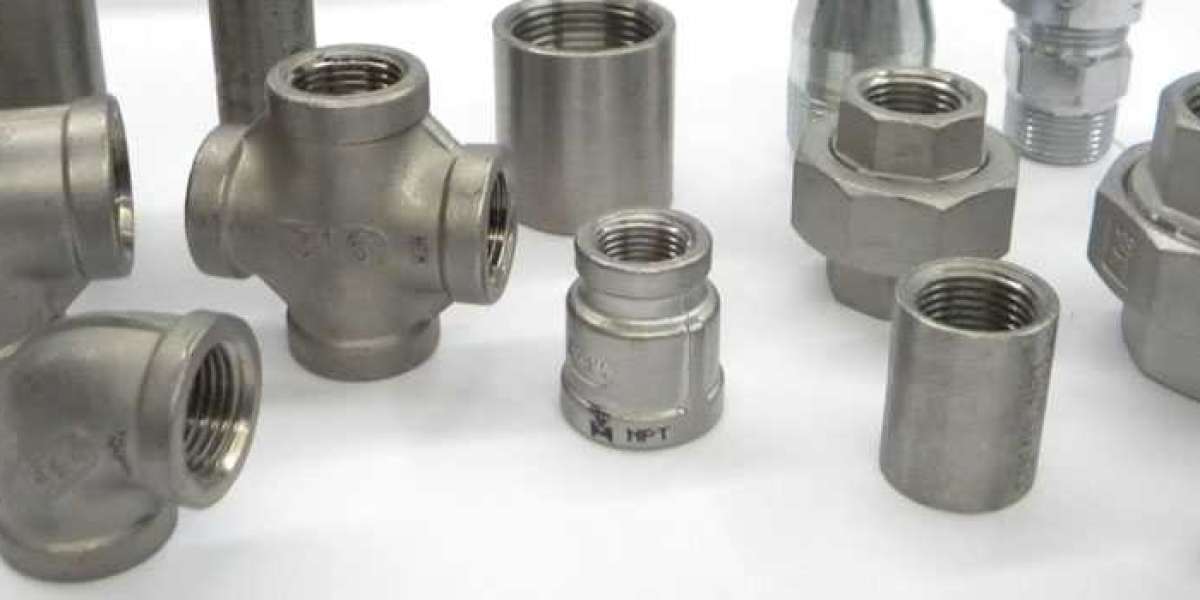Alloy 20 Forged Fittings are components used in piping systems to connect, control, or terminate flow in high-pressure environments. These fittings are manufactured by forging Alloy 20, a corrosion-resistant austenitic alloy composed mainly of nickel, chromium, molybdenum, and copper. The forging process involves shaping the alloy under high pressure, enhancing its strength and resistance to mechanical stress.
What Makes Alloy 20 Forged Fittings Suitable for Corrosive Environments?
The standout feature of Alloy 20 Forged Fittings is their exceptional resistance to:
Sulfuric acid (widely used in chemical processing).
Chloride-induced pitting and stress corrosion cracking.
General corrosion in acidic and salty environments.
This resistance is due to the alloy’s balanced chemical composition, which includes:
Nickel (32–38%) – Provides excellent overall corrosion resistance.
Chromium (19–21%) – Enhances oxidation resistance.
Copper (3–4%) – Improves resistance to sulfuric acid.
Molybdenum (2–3%) – Helps in resisting pitting and crevice corrosion.
These properties make Alloy 20 ideal for fittings used in highly corrosive or unpredictable conditions.
Where Are Alloy 20 Forged Fittings Commonly Used?
Alloy 20 Forged Fittings are widely used in industries where protection against harsh chemicals is essential. Some key applications include:
Chemical and petrochemical processing: For handling sulfuric acid and nitric acid lines.
Pharmaceutical industry: In systems requiring hygienic, corrosion-resistant piping.
Food and beverage production: Suitable for acidic product lines and cleaning systems.
Marine industry: Resistant to seawater and brine applications.
Power plants: Used in heat exchangers and condenser systems exposed to corrosive fluids.
Their robust build and leak-proof connection capability make them reliable even in high-pressure and high-temperature environments.
What Are the Types of Alloy 20 Forged Fittings Available?
Depending on system requirements, a range of forged fittings are manufactured in Alloy 20:
Elbows (90° 45°): To change the direction of flow.
Tees and Crosses: To divide or combine flow lines.
Couplings and Unions: For easy assembly and disassembly.
Bushings and Reducers: For connecting pipes of different sizes.
Caps and Plugs: To close pipe ends securely.
These fittings come in various pressure classes like Socket Weld (SW) and Threaded (NPT/BSP) configurations, ensuring compatibility with global piping standards.
Why Should You Choose Alloy 20 Forged Fittings Over Conventional Stainless Steel?
While stainless steel is widely used, Alloy 20 offers superior performance in environments where traditional steel alloys might fail. Here's why:
Better corrosion resistance: Especially in sulfuric and nitric acid.
Greater mechanical strength: Thanks to the forging process.
Lower maintenance costs: Fewer failures mean less downtime.
Extended service life: Outlasts many other alloys in demanding conditions.
Investing in Alloy 20 components helps reduce long-term costs by improving the reliability and efficiency of your operations.
Conclusion:
Whether you're managing a chemical plant, a marine vessel, or a pharmaceutical facility, Alloy 20 Forged Fittings provide unmatched strength, reliability, and corrosion resistance. Their ability to endure hostile environments makes them a smart choice for long-term performance and safety.







